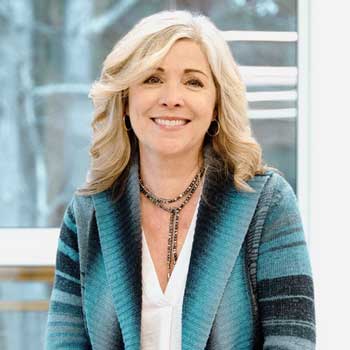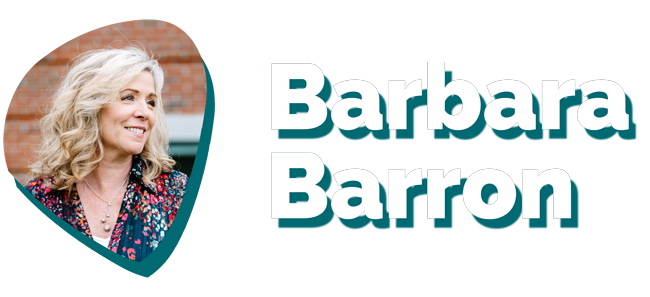by Barbara Barron | Posted February 28th, 2024 | Subscribe to this newsletter

Here’s a true story of two solicitation meetings, where space may have played a key role in the outcomes.
Tale #1:
Many years ago, when I was a DoD, I was working hard to secure a significant gift from a wealthy and newly engaged family. The Head of School and I arranged to meet them for lunch at a popular restaurant.
Sound familiar?
The atmosphere was lively that Friday midday. In fact, it was loud. The waiter was slammed, and a little flustered. They kept popping by the table as we talked about the couple’s four children over lunch.
However, trying to get to the subject of their support felt difficult because of the noise and the near-constant interruptions. Finally, as we were about to order coffee, and things around us had quieted, the dad looks at his watch and pops up, exclaiming that he was going to be late for an appointment. So out the door they both go, along with our moment to ask for their support on a new project.
What did we do wrong here? Besides the (hopefully) obvious point that we should have requested the waiter to give us a minute early on and then asked for their support before the meal was even served, thus, ensuring the very purpose of the lunch was achieved, it is the location. The space. A popular choice for development meetings and almost always, a bad one.
Tale #2:
A client asked me for coaching before an important solicitation conversation.
This was to be the biggest ask this new Head of School had ever made. We talked it through on Zoom the day before the meeting. She had all her key points nailed: the transformative impact the project could have, the impact this family would make. We practiced her saying the ask amount and then sitting quietly to hear their response (not easy, ever!). We ran through a few possible objections and how she might handle them. She was ready. Off she went.
Where? To the couple’s home. She sat with them in their family room. She made her points, thanked them for their leadership over the years, and then asked them to consider this significant anchor gift.
How did it go?
Have you subscribed to this newsletter yet? It only takes a minute.
How It Went…
Well, they thanked her for asking them so confidently and boldly, and in fact, said they were proud of her. They agreed that they very much wanted to make the gift. They were going to consult with their siblings about how to structure it as a family gift.
Bingo.
What role did space have? Did it make a difference here?
Obviously, yes.
First point: they were all seated in the donors’ family room (symbolism, not lost), in a comfortable, familiar place. Next, no interruptions — kids were at school, no waiter, and no distracting and competing noise or activity. It was the right space for such an important conversation. It was respectful of the family and fitting for the Head in this moment of her expanding leadership.
It goes beyond controlling for those outside factors, which is, admittedly, important. Turns out, the spaces we choose to do our work matter. When we are thoughtful about location, timing, and tone, we have a far better opportunity to create an atmosphere, a container if you will, that helps ensure that these become the potentially life-altering moments they might be. For our donors and for our schools. It doesn’t have to be in their home. It can be your office. The Head’s office. Their office. As long as you can ensure the conditions will be optimal.
And even when working with long-time donors who will often eschew any extra effort or say things like, “Oh, we don’t need a meeting”, ask for it anyway. Tell them that it would mean a lot to you. Explain that you’re striving to do your very best work and that meeting them at their home would be a gift in and of itself. Most donors want to help us do our jobs better. They’ll likely agree. And whether this is a first ask or the tenth, do it right. Let the right space be that X-factor in your plan.
How about a quick check-list?
- quiet — no competing distractions
- private — you are talking about confidential matters
- comfortable — for everyone
- a bit special — this is an important conversation; make it feel that way
And then this: before you start, check in on the donor’s head and heart space. Ask if they still have the hour (or whatever you asked for). The last think you want is to get going and have the person say, “Oh, Barbara. I’m so sorry but I only about about 10 minutes today. Something urgent came up.” Or if their heart isn’t in it because something is going on in their personal and professional lives that commands their attention. Space. In so many ways, its always important.
If you could use a little pre-game coaching, let me know. I’ve seen it make a world of difference. And thanks for everything you’re doing.
And good luck!

Barbara Barron
[email protected]
Share this post:

BARBARA BARRON is one of the most respected and highly sought-after independent advancement professionals in the country, having worked with dozens of schools in every corner of the United States.
She has raised over $20 million for schools where she served as the Director of Development. Barbara is a New York Times bestselling author, speaker, and presenter who currently advises dozens of schools in various capacities. She is considered a thought leader in the world of advancement, with her writing widely shared by professionals in development offices worldwide.
More Advancement Articles







